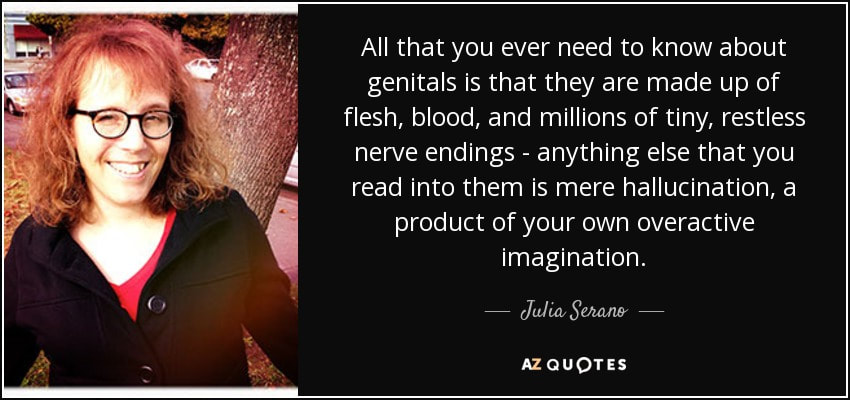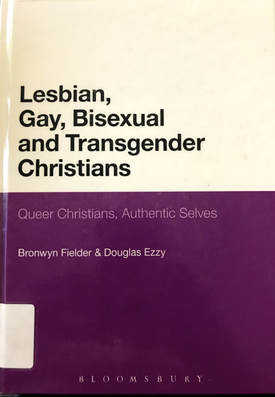 Want to mess with the heads of closeted trans females? Try something like the use of the term 'autogynephilia'. I should know. It bound me up, albeit very briefly, as I struggled in the past to come to terms with myself. It is a crude and toxic theory invented in the late 1980s by American-Canadian sexologist Ray Blanchard (and promoted by others such as J.Michael Bailey and Anne Lawrence). It is defined 'as a man’s paraphilic tendency to be sexually aroused by the thought or image of himself as a woman", whereby types of male to female transvestism and transsexualism are understood as 'erotic target identity inversions'. As such, it is roundly rejected both by transgender people and by authoritative research and transgender health expertise (see further, for example, Julia Serrano here). It does not cohere with the sheer complexity and texture of gender and sexually diverse people's experience. Indeed, whilst purporting to offer a basis for care and compassion, it invalidates our knowledge of ourselves and prevents wholeness. It thus does nothing for a healthy wider sexual ethic or positive gender relationships today. Yet, as a simplistic and sex-obsessive approach, it has become one weapon in the armoury of people on the religious right. Frightened perhaps by their own, actual but unacknowledged, sexual and gender fears and compulsions, they seek to portray sexual and gender diverse people as willingly, or unconsciously, perverse (in the destructive sense of that word). Indeed, the accusation of narcissism thrown at transgender people from such quarters, is in fact a better description of that approach itself Hypnotised, it seems, by an exceedingly narrow desired image of humanity, they cannot see beyond the mirror of their own imagined selves. In doing so, not only are the realities of those who are 'different' denied, but, in 'othering' us, they distance themselves from the divine Other which is the source and pathway of their own authentic identities. For no wonder they are consumed with outrage about so-called 'political correctness' and 'identity politics'. What gender and sexually diverse people do is to threaten the brittle identities some seek so hard to insist upon as wholly defined and exclusive. In doing so, we offer an invitation to greater authenticity for everyone...
6 Comments
 How often, I wonder, has a Lesbian, Gay, Bisexual, or Transgender Christian been attacked as a religious, moral, or logical 'impossibility', 'a contradiction in terms', a living oxymoron? Pretence and deceit are certainly themes which hover around gender diverse people and discussion of our lives and sense of being. Spiritually speaking, such features are typically regarded as unhealthy. Whilst, for instance, there are some positive stories of trickery in the Bible (notably in the case of the patriarch Jacob), these are usually the sign of a wayward, scheming, selfish or misdirected person. Later transitioning religious people are thus frequently caught in certain traps as they become the more 'authentic' selves God calls them to be. On the one hand, we may be called people of pretence and deceit by those who refuse to accept the realities of our identity. On the other hand, we may be attacked for hitherto seemingly living lives that were not true or misleading. At the very same time, we may also be dealing with our own shame, guilt, and confusions about what we may have 'pretended' to be. Yet, as we are reminded in both the powerful scriptural text of 2 Corinthians 6, and a just published book Lesbian, Gay, Bisexual and Transgender Christians: Queer Christians, Authentic Selves (by Bronwyn Fielder & Douglas Ezzy, Bloomsbury Press 2018),, we may be 'treated as impostors but are true' (2 Cor 6.8b)... |
AuthorThe Revd Dr Jo Inkpin: Archives
March 2024
Categories
All
|
 RSS Feed
RSS Feed